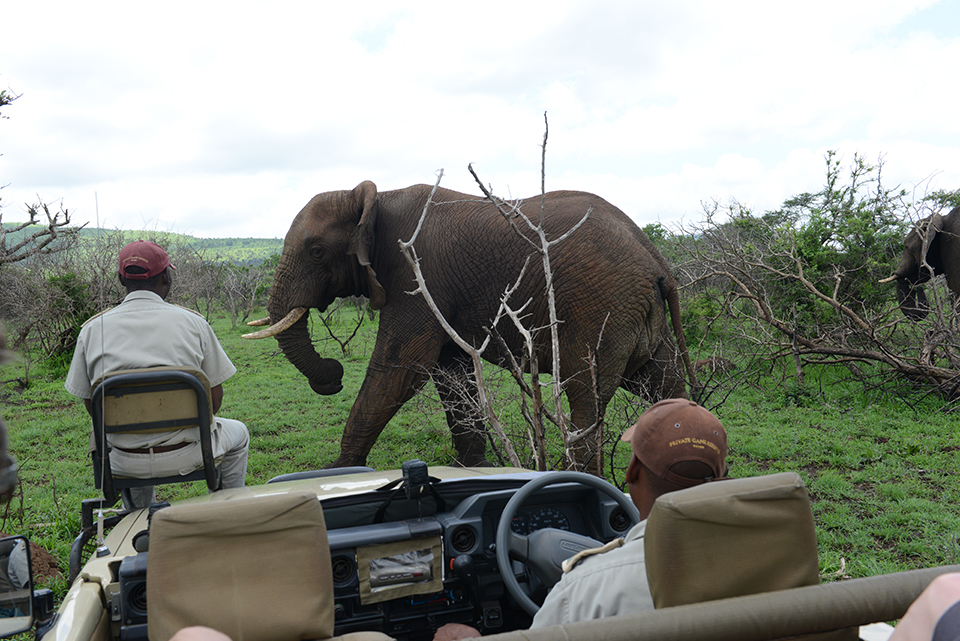Travel Checklist South Africa
»He who listens understands«
Jabo / Liberia
If you are planning to visit Africa, then my travel checklist South Africa will definitely help you. As soon as you step on the ground of South Africa or Southern Africa, an adventure begins for you, for which you should be well prepared. With my travel checklist you will definitely have everything you need.
At that time I got my information from the Daktari movie with Clarence, the cross-eyed lion! I thought I would also have to get the typical safari gear with pith helmet, sand colored shirt, short olive green pants, long knee socks and additionally a rifle.
Travel Checklist South Africa: This does not work at all!
All nonsense! I wore the »imperialist« pith helmet only once and then never again. Much too uncomfortable, too heavy and worst of all: everybody laughs at you!
Importing a gun involves a lot of regulations and thus paperwork and it really doesn’t need it. Wild animals are more afraid of humans than we are led to believe otherwise in the media. By the way, I have never met a wild animal that would attack or even kill a human being out of pure desire and for no reason.
Benefit from my over 20 years of experience
With over 20 years of experience in South Africa and Southern Africa, I can inform you competently and professionally for what you really need for such a trip.
Times often change very quickly, especially in Africa. What is normal today can be completely different tomorrow. Since I visit South Africa as well as Southern Africa regularly , I keep myself up to date and can therefore inform you competently about the latest developments.
That information is however without guarantee.
Travel Checklist South Africa and Southern Africa
To open the individual tips, simply click or tap on the plus sign
Travel case
If you are departing from an airport and travel with a rented car from Durban, Johannesburg or Cape Town, a hard-sided suitcase is ideal.
However, if you are flying on with a smaller plane, for example to a camp in Botswana, Namibia, Zambia or Zimbabwe, then soft travel bags are a must. In addition, the maximum weight per bag and passenger is severely limited depending on the small plane.
Depending on the package (a mix is possible) you may fly, for example to Johannesburg, repack your necessary belongings in the soft travel bags that you have taken with and store a part of your luggage in your hard case at a safe place in Johannesburg. I shall organize this for you.
Clothes in general
- In the bush, no one needs to stand out. The dress code is relaxed.
In the city, you can take something fancier for going out or to a restaurant. - Your clothes should be comfortable, practical and warm. Temperatures between day and night can vary greatly depending on the season. Therefore, rely on the onion principle, so you are well prepared for the respective conditions. Also remember that not everything is as readily available in Africa as it is here.
- Avoid clothes in white color because they look dirty too quickly. Avoid also very dark colors and black; mosquitoes love dark clothes and you sweat faster in them.
- Flashy and neon colors are also not appropriate unless you want to stand out!
- Neutral colors like sand, beige, light brown, khaki, olive as well as pastel colors and natural colors are best.
- I always take a tube of liquid soap with me and wash some things myself, because in Africa laundry dries within a few hours. My tour suggestions are based on staying at least every 3 to 5 days in a hotel, guesthouse or lodge that offers laundry service, which is common.
Clothes proposal
- Underwear (bra, sports bra, panties, underpants) for three to five days.
- Short socks, 1 pair, not sneaker socks, they are shorter than the pants and thus expose skin for mosquitoes. Bites in the ankles are particularly painful.
- Long socks, preferably hiking socks, 2 pairs.
- Pijamas 1 x, light and made of cotton depending on the part of the country, it can get cold at night. Wool blankets, extra comforter or sleeping blankets are usually available.
- Long pants 2 x, durable and insect proof.
- Shorts 2 x, for during the day when it gets hot.
- Shirt, blouse with long sleeves 2 x, you can roll up the sleeves.
- Short sleeve shirt or blouse 1 to 2 pcs. For going out, in the evening and in the restaurant.
- T-shirt 3–4 x. Most of the time, travelers buy some new T-shirts and give theirs to some local people as a gift instead of money.
- A chic evening dress, a skirt for women, if you want to do something special in the evening. However, do not overdo it; with a sporty, elegant clothing you come through on my trips.
- A turtleneck, sports sweater, hoodie or fleece jacket for the game drives early in the morning and in the evening and also for sitting around the campfire.
- A neckerchief or neck scarf.
- A light rain and windproof jacket.
- A pair of light flip flops for showers, swimming pool and in the room.
- A bathing suit or trunks.
- One pair of good shoes or sneakers for city tours and general walking.
- A pair of light, but sturdy and well broken in walking shoes. My recommendation: Since these are usually heavier but comfortable, they are the ideal shoes for flying, arriving, and departing.
- Hat, bandana or headgear for protection from the sun.
Personally
- A toiletry bag with all the necessities:
Toothbrush with toothpaste, dental floss.
Razor, aftershave.
Deodorant, cologne, perfume.
Hairbrush, comb.
Hair clip, clips, barrettes.
Lip cream.
Body milk or cream, facial care products.
Cotton swabs.
Shaving kit for ladies.
Tampons, panty liners.
Sunglasses with high UV protection.
Glasses with spare pair.
Contact lenses with cleaning kit.
Sunscreen cream, depending on skin sensitivity.
Après-soleil cream.
Soap, shower gel, shampoo, bath towel, terry towel, towels, washcloth and hair dryer (hairdryer) are not necessary on my trips as they are available in my selected accommodations (exception if you have a preference for certain products). - Mobile (cell phone) with charger.
First Aid Kit
- Personal medication with prescription (pack in hand luggage!).
- Personal first aid kit.
- Medication against diarrhea.
- Medication against flu/cold.
- Tablets against motion sickness (flight and sea).
- Medication against insect bites.
- Mosquito and tick repellent.
- Suture strips.
- Adhesive plasters.
- Elastic bandage.
- For people with visual impairments: Glasses and spare eyeglasses or contact lenses.
- Sunglasses with »UV400« the »100 percent« UV protection.
- Eyeglass lens cleaner or wipes.
- Hand disinfectant gel.
Safety and security
- A safari experience is a relaxed affair, so we recommend leaving your expensive jewelry at home.
- You can find current travel and safety tips as well as interesting information under our links.
- As when traveling to other countries, you should always be consciously vigilant in Africa. If you are traveling without a guide, adhere to certain safety measures and listen to your local hosts at your accommodation to avoid any unpleasant and unexpected incidents.
- If you are traveling with a guide, listen to him and follow his instructions. Also, use your natural common sense.
- Do not leave any objects open in the car.
- When entering game parks or reserves, each participant will be asked to sign a liability waiver and disclaimer. Where possible I will send this in advance. This declaration is part of my terms and conditions, mostly in English, and must be signed by you.
On a safari, the following must be observed:
- Follow the instructions of the ranger and your guide.
- Neither talk loudly nor shout. Blend in with nature.
- Do not feed animals and birds.
- Do not pull out flowers or plants.
- Whatever you take with you – handkerchief, chewing gum, drink bottle etc. – bring it back and dispose of it in the camp.
- Do not leave anything except your own footprints.
- Depending on how you encounter wild animals, they can react dangerously.
Documents
- A passport that is valid for at least six months beyond the return date and still contains at least two free double pages.
- Which travel documents you need depends on your nationality, your flight destination, and your transit countries. I will inform you what is required.
- Having had bad experience with malaria pills, I do not recommend taking any preventative medication, but do recommend bringing an emergency medication to take in case of malaria illness. Depending on the area and time of year, you may not need these chemicals. This is my tip and is by no means binding. Your tropical doctor will inform you.
To record and remember the trip
- Photo, film equipment.
- GoPro camera.
- Batteries and charger.
- Memory cards.
- Binoculars or field glasses.
- You will receive a travel plug from me.

